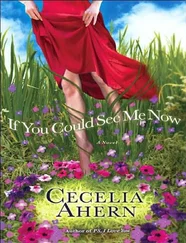Finally he released my hand. “Did you have a good drive?”
“Sure,” I said. “This country isn’t as big as we think it is. People zip back and forth on it all the time.” The persistence of habit: although he was nearly a decade older, I had always taken this tone with Duane.
“I’m glad you had a good drive. You sure surprised me when you said you wanted to come out here again.”
“You thought I was lost among the fleshpots of the East.”
He distrusted the word “fleshpots,” being not quite sure what it meant. That was twice I had taken him off balance. “I was just kind of surprised,” he said. “Say, Miles, I was sorry about your wife. Maybe you wanted to get away?”
“That’s it,” I said. “I did want to get away. Did you take time off from your work to greet me?”
“Well, I didn’t want you to come in and find nobody to home. The kid’s gone out somewhere, and you know kids, you can’t count on them for anything. So I thought I’d wait around after lunch and say hi. Make you feel welcome. And I thought I might listen to the radio in the porch there, see if anything new happened on that terrible business. My kid knew that Olson girl.”
“Will you help me get these bags and things inside?” I said.
“Huh? Oh, sure,” and he reached in, bending over the seat, and lifted out two heavy boxes of books and notes. Upright again, he asked, “Is that beer in there for me?”
“I hope it’s your brand.”
“It’s wet, ain’t it?” He grinned. “I’ll put it in the tank when we got you squared away.” Before we went toward the porch, Duane twisted his head and looked at me with a surprisingly embarrassed expression on his face. “Say, Miles, maybe I shouldn’t have said that about your wife. Because I only met her that once.”
“It’s all right.”
“No. I should never open my mouth about anyone else’s woman troubles.”
He was referring, I knew, to his own history of marital disaster and to something else as well. Duane was suspicious of women — he was one of those men, sexually normal in every other respect, who are at ease only in male company. I think that he had a radical dislike of women. For him they primarily had been sources of pain, with the exception of his mother and grandmother (about his daughter I could not then speak). After his first disappointment, he had married a girl from one of the farms in French Valley, and this girl had died giving birth to their child. He’d had one numbing humiliation at the hands of a girl (the humiliation not salved by his grandmother’s evident satisfaction in it) followed by four years of being between women, his romantic life joked about in Arden bars, then eleven months of marriage and the rest of his life without adult feminine companionship. I suspected that his suspicion of women contained a fair portion of hate. For Duane they had approached and then abruptly withdrawn, still holding whatever mysterious sexual secret they possessed. In the old days, when the Polish girl had been giving him trouble, I had often sensed that his attitude toward Alison Greening was edged with something darker than mere desire. I think he hated her, hated her for evoking desire in him and for finding his desire laughable, a thing of no consequence or value. Alison had found him absurd.
Of course Duane was physically vigorous, and his celibacy must at times have been a torment: yet I suspected him of being the kind of man who is shocked and upset by his own fantasies, and is comfortable with women only when they are safely married to his acquaintances. He had submerged his sexuality in work for so long that he expected other men to do the same, habit had become transformed into principle, and he had his success to justify him. Duane had purchased two hundred neighboring acres, and was; now at the limit of what a man could farm by himself if he worked ten hours a day; as if to demonstrate the physical law that actions have equal reactions, sexual starvation had fattened his bank account.
The immediate evidence of his prosperity struck me when we carried the boxes and suitcases into my grandmother’s old house. “My God, Duane,” I said, “you bought new furniture for the place!” Instead of my grandmother’s spare old wooden furniture, her threadbare old sofa, the room held what I suppose could be called nineteen-fifties lounge furniture: heavy patterned chairs and matching couch, a blond coffee table, starkly functional table lamps instead of kerosene lamps, even framed reproductions of mediocre paintings. In the setting of the old house, the nondescript new furniture had a tactless chic. The effect of all this on the austere farmhouse living room was to make it resemble a freeway motel bedroom. But there was another resemblance I did not immediately identify.
“I suppose you think it’s funny to get new stuff for an empty house, don’t you?” he asked me. “The thing is, I get people stopping up here more often than you’d think. In April, George and Ethel were here, and in May Nella from St. Paul, and—” He went on to enumerate a lengthy list of cousins and their children who had stayed in the house for a week or more at a time. “Sometimes this place is like a regular hotel. I guess all these city folks want to show their kids what a farm looks like.”
While he talked I noticed that the old photographs of the grandchildren still hung on the walls, as they always had. I knew them all: I identified a picture of myself at nine, my hair in a cowlick like a ruff, and one of Duane at fifteen, scowling suspiciously at the camera as if it were about to tell him something he wouldn’t like. Below this was a photograph of Alison which I sensed glowing at me but lacked the courage to look at directly. The sight of that beautiful wild face would have knocked the wind out of me. And then I noticed that the house was immaculately clean.
“Anyhow,” Duane was saying, “up over to Arden, a warehouse full of office furniture had a clearance sale just when I got my rebate. So I thought I’d do the old place up since all the furniture was going pretty cheap. Took the truck down and just humped all this stuff back with me.”
This was the resemblance I had been unable to name: the room looked like an office in a down-at-heels concern.
“I like the modern way it looks,” said Duane, perhaps a shade defensively. “And it cost less than a second-hand disc.” He glanced at me, then added, “Everybody seems to like it.”
“It’s great,” I said, “I like it too,” distracted by the throbbing and glowing of Alison’s photograph on the wall. I knew this photograph well. It had been taken in Los Angeles near the end of her childhood, before the Greenings were divorced and Alison and her mother moved to San Francisco. It showed only her face. Even when she was a child, Alison’s face was beautiful and complicated, magic, and her father’s photograph showed it all, the beauty and the magical complications. She looked as though she knew and embraced everything. The thought of that overwhelming expression on her childhood face made my stomach tingle, and to avoid looking at the photograph I said, “I wish you had picked up a desk while you were at it. I need a desk to work at.”
“That’s no problem,” said Duane. “I got an old panel door and a couple of sawbucks we: could lay it across.”
“Well,” I said, and turned toward him. “You’re a good host, Duane. The place looks clean, too.”
“Mrs. Sunderson down the road, you remember her? Tuta Sunderson? Her husband died a couple of years back, and she lives up there now with her boy Red and his wife. Red farms pretty near as good as Jerome did. Anyhow, I talked to Tuta and she said she’d come over here every day to cook your breakfast and dinner and clean for you. She was in here yesterday.” He paused, having something further to say. “Said it would be five dollars a week and you’d have to buy your own groceries. She can’t drive since: she had her cataract operation. That okay?”
Читать дальше












